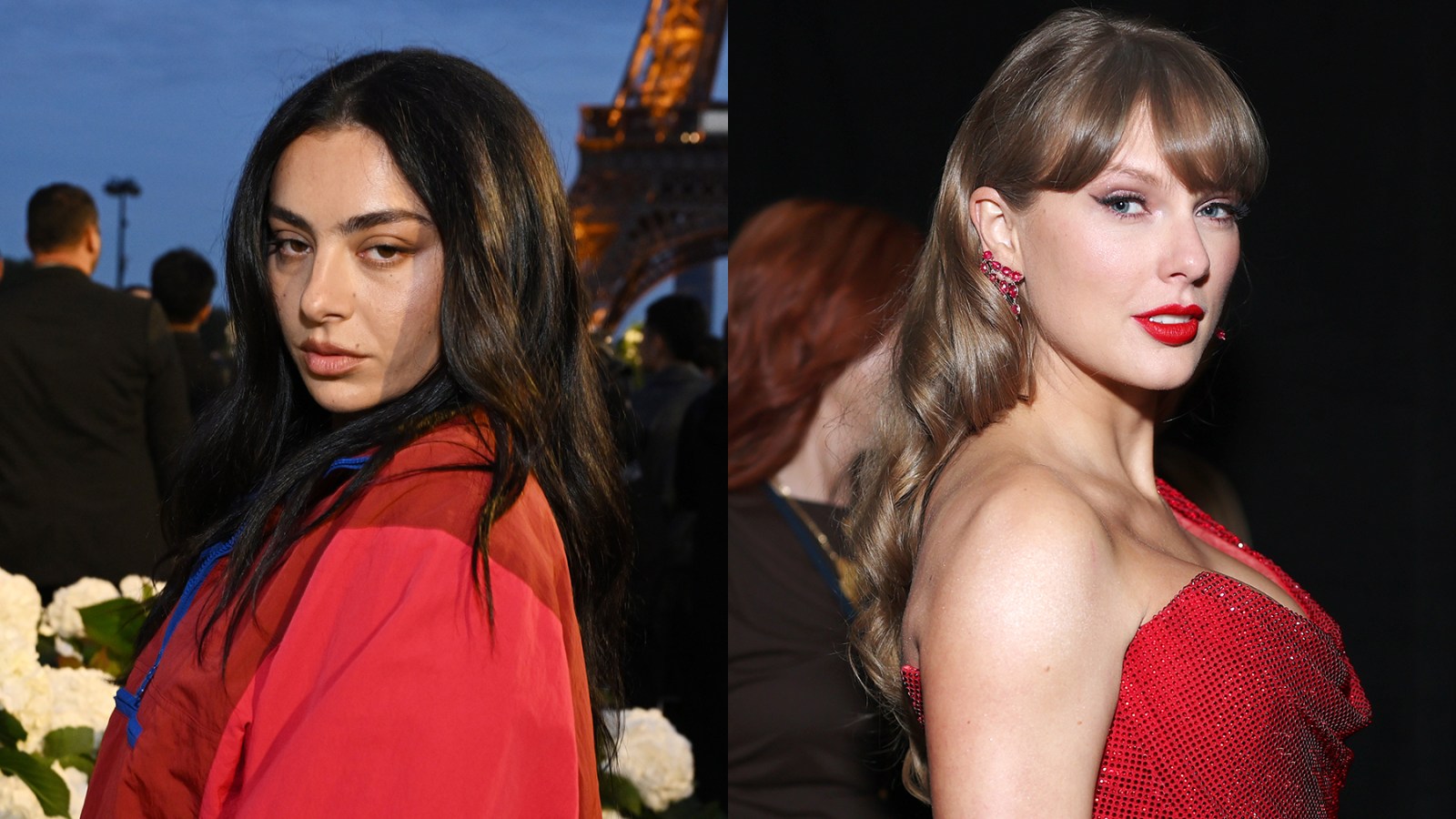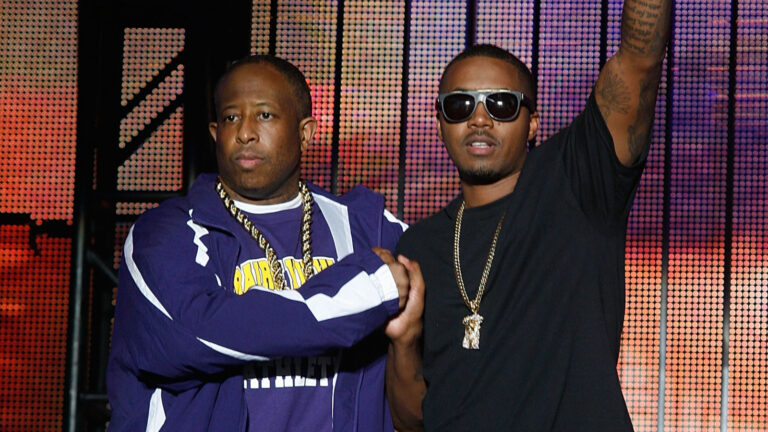Going into Taylor Swift’s The Life of a Showgirl, part of the thrill was that it seemed like we were going to get Reputation-style anthems. She’d reunited with Max Martin for the first time since that excellent 2017 LP — and the showgirl themes opened up plenty of possibilities. Thematically, a revenge-fueled song or two would make sense on a project centered on performance and public scrutiny — a “showgirl” is, after all, always on display. But did Swift need to punch down to fulfill the concept?
One of the album’s most talked-about songs is “Actually Romantic,” a clapback many people believe is about Charli XCX. Swift opens the track with an incisive line: “I heard you call me ‘Boring Barbie’ when the coke’s got you brave.” Many immediately assumed it was aimed at Charli — a swing at Brat’s drug references, played for shock value to underscore how Charli (or really, the “cool girls” she represents) might see Swift. The “coke” line goes after an image Charli owns up to and, frankly, celebrates. It sets up the tension between them (the polished pop star and the chaotic party girl), but it lands more “holier-than-thou” than it does clever.
Swift has said the song is about someone who had a “one-sided, adversarial relationship with” her. But how adversarial did things seem with Charli? Let’s go back to Brat.
On “Sympathy Is a Knife,” Charli’s mind spirals as she thinks about a peer who is so untouchable that she feels like she will never compare. “I’m embarrassed to have it, but need the sympathy/ ‘Cause I couldn’t even be her if I tried,” she sings. In many ways, the song plays less like a diss and more as Charli confronting her own insecurity and the fear she’ll never reach that top echelon of pop stardom because they’re “so opposite” from the Swift-like figure in the song. What makes it land is that it’s a vulnerable self-portrait drawn from comparing herself to a woman who, for years, has embodied pop perfection.
“Sympathy” doesn’t exactly antagonize Swift, though. Charli does admit she doesn’t “wanna see her backstage at my boyfriend’s show” and sings about how she hopes Swift and Matty Healy break up (they eventually did) — but she follows it with a lyric that encapsulates the entire point of the song: “I couldn’t even be her if I tried.”
Charli put it succinctly in an interview with Vulture: “That song is about me and my feelings and my anxiety and the way my brain creates narratives and stories in my head when I feel insecure… Sometimes I’d look onstage and be like,’ Oh my God … I’m never going to play these rooms, ever.’ That made me feel jealous,” she explained.
In an interview with the Wall Street Journal, Charli also shared that part of the song was rooted in her self-perception early in her career, when she “desperately wanted to be blonde” like Britney Spears but couldn’t escape Spears being, as she put it, “the opposite of who I was.” That explanation further drove in “Sympathy Is a Knife” as a song that touches on how her racialized identity as an Indian-British woman in the industry affected her self-image. Rather than a jab at Swift, Charli is attempting to face her own insecurities.
With any celebrity friendship or feud, there’s always more than meets the eye. As listeners, no one has the full context of Swift and Charli’s dynamic. What we do know: Charli opened for Taylor on the Reputation tour in 2018, they both dated members of the 1975 at around the same time, and their paths have likely crossed more often than people realize. So if Swift really does live “rent-free” in Charli’s head, as she suggests in “Actually Romantic,” that’s something we may never fully get to understand. But as listeners, hearing “Actually Romantic” as such a pointed response to “Sympathy” just felt unnecessary.
There’s, admittedly, some fun in pop-star rivalries. But “Actually Romantic” lacks a sense of fun and mystery. Swift casts herself as misunderstood, which is hard to believe, given just how celebrated she’s been in recent years as she’s become a cultural icon. The song, instead, reads as a reflection of Swift’s desire to be universally liked. It takes a sing-songy, almost teasing tone, as if she’s trying to brush off Charli with a smirk: “You think I’m tacky, baby/Stop talking dirty to me,” she sings, aiming for playful but landing more defensive. Swift wants to sound unbothered, even though every lyric suggests the opposite. “Like a toy chihuahua barking at me from a tiny purse, that’s how much it hurts,” in particular, feels like a cheap, belittling shot. And then there’s the line, “I mind my business, God’s my witness that I don’t provoke it / It’s kind of making me wet,” which hints that, deep down, Swift might enjoy Charli’s perception that she’s unreachable, reinforcing the very dynamic Charli laid out on “Sympathy.”
After all, Swift is the same artist who once sang, “I’m a mirrorball / I can change everything about me to fit in,” admitting her instinct to adapt to criticism just to be loved. The stronger move would’ve been to frame the track around the pressures of being the woman on top, and the weight of other women measuring themselves against her. There’s also the compelling approach of Charli’s “work it out on the remix” when she brought Lorde on “Girl, So Confusing.” The pair of musicians chose to be honest about their feelings about each other, transforming comparison into camaraderie, rather than misguided conflict. “Girl, So Confusing” became one of the most refreshing, celebrated music moments of the year, and Swift could’ve taken a page from that playbook instead of crashing out for the sake of a sassy song.
As Charli told The Guardian while promoting Brat, it’s an “unrealistic expectation of women” for everyone to get along. “Relationships between women are super-complex and multi-layered. You can like someone and dislike them at the same time,” she said. It’s not bad advice.



